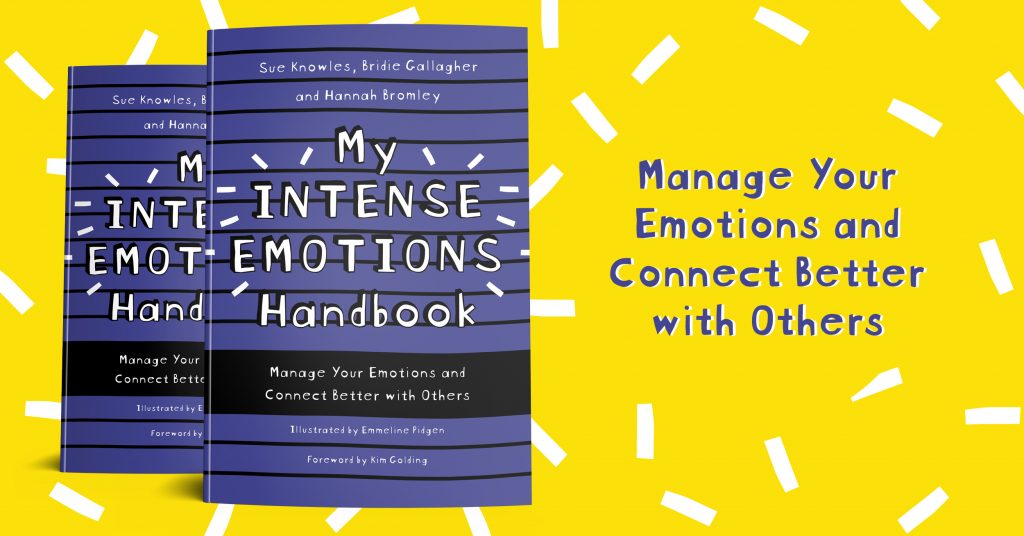
the straightforward guide to help young people with understanding and improving their intense emotions and relationships. Here Bridie Gallagher writes about why we need to explore beyond the ‘illness narrative’ to understand why people might feel the way they do.
There is so much talk in the media about the negative impact on mental health from the pandemic and the way that lockdown and uncertainty have affected the wellbeing of children, parents, and those working in the health service at this really difficult and stressful time. This coverage is totally valid and understandable. We write books for young people about anxiety and distress because we think for them to be able to thrive in adulthood, we all need to understand our responses to stresses, threats, and even traumatic experiences. Crucially we need to know our feelings and responses are human and normal as this connects us to others and allows us to reach out not try to cover up and just “get on with it” when things are tough. Reducing stigma is therefore a really important part of reducing distress and promoting healing when life is hard. If we understand what is going on in our bodies as well as our minds, we have a much better chance of finding the ways to respond that work for us and then we can build our resilience and ability to bounce back from life’s stresses, losses and difficult events.
So, whilst we welcome the increased attention that mental health needs, we do feel a bit worried though when we see a lack of what we call “resilience narratives” and a lot of talk about mental disorders. Disorder is just a way of saying that a problem interferes with your life and is not simply passing but has been around for a while. But when young people (or any people) receive a diagnosis like this, it is problematic if it means we think we can find the right response or treatment “off the shelf.” It can also stop us thinking about the story behind it which is most often where the healing and resilience narrative also lies. Below is a young person’s story from “My Intense Emotions handbook” that we thought illustrated this perfectly. Remember, everyone is coping the best way they know how at any one time. Most of our “symptoms” are survival strategies that have got us through, and we need to be compassionate to ourselves and others and ask, “what happened to me/you/us?” not “What is wrong with me/you/us?”
Jade’s Story
Throughout my experience with mental health services, both NHS and voluntary, from about the age of 11, I never once went through a formulation or ‘my story’ with community mental health service. Their main focus seemed to be trying to give me a diagnosis. They gave me the ‘label’ PTSD without really knowing what was causing the symptoms for PTSD. They were trying to help someone without a clear understanding of how they could help me. As I believe you could have 5 people in a room with PTSD which all have very different traumas which would need to be treated in very different ways. There are so many different ways to help people with trauma so instead of constantly going through a big list of therapies, with a formulation the people working to help you can narrow down what they may need to do to help. Trauma could be caused by all sorts, you have your big traumas and your little traumas and everything adds up, every person will have different causes for their mental health. Every mental illness is very complex and caused by many different factors, by not having the understanding of my formula or my story how could they know how to help me, what therapies, medication (if needed) and overall support? I believe that the cause of me hitting so many brick walls and struggling so much to work with them whilst being under community CAMHS was to do with not having a formulation, not having a clear understanding of me as an individual.
When I got put into inpatient services that was the first time ever doing a formulation. I didn’t even know what a formulation was until my psychologist sat down with me and explained it to me and I filled one out. I believe that it caused the staff trying to help me understand me more and I even felt like I understood myself more instead of just this label I got. I felt like this allowed my main care team to understand and actually help me understand why I suffer with the symptoms I do. After so long of being so confused about how I was feeling and what I was doing it was some sort of explanation which I believed benefited me a lot. Also I believe it gave me the best shot at some of the therapies I tried even though I didn’t complete the therapies because I wasn’t ready yet. The understanding that my psychologist had allowed the therapies to be right for me, they were actually trying to help me deal with the things I struggled with.
I truly believe that every professional working with a person with mental health should do a formulation with the person.